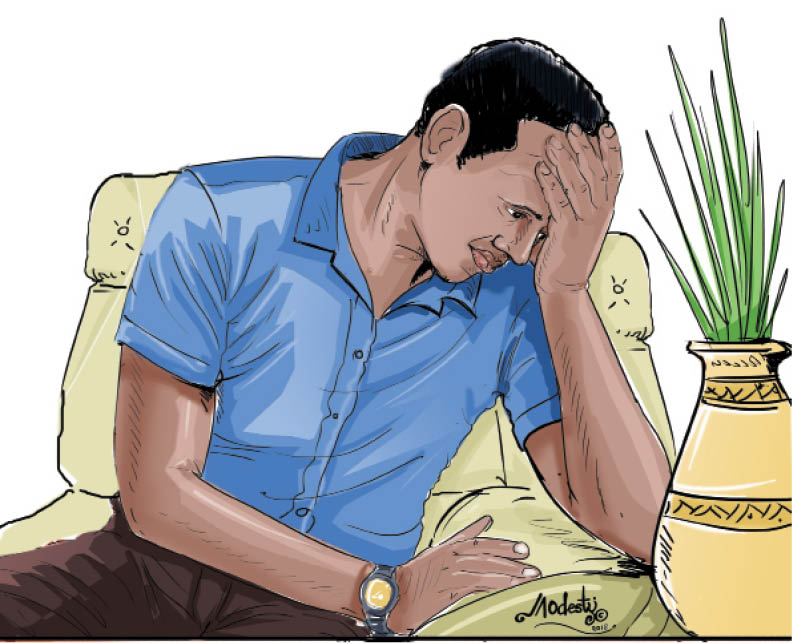John Osagie, 40, was married for five years without children before he sought treatment at a hospital. Before then, only his wife had been visiting the hospital. Osagie was diagnosed of a form of male infertility and now has two sons following successful treatment.
A health advocate, Abdullahi Mahmud Udojie, said infertility affects both males and females and that it is nearly equally distributed between them.
He said infertility results in many broken homes, increased financial burden, and psychological disorders among others when not addressed.
Udojie described male infertility as the inability of any adult male to impregnate a fertile woman after one year of regular unprotected sexual intercourse, and that results from an underlying problem from the male counterpart.
CDS Irabor bags Online news platform’s Award
My health challenge stale news, rubbish – Tinubu
According to him, male infertility majorly results from disorder of the male reproductive system, noting that one out of three men have been reported to have a problem with the male reproductive system.
He said the reproductive system in males is a potential cause of infertility, as it is responsible for the production, maintenance and transport of sperm and semen into the female reproductive tract.
“This system comprises the penis, scrotum, testicles and other internal organs like the vas deferens, prostrate and urethra.
“It also produces and secrets the male sex hormones such as follicle-stimulating hormones (FSH), luteinizing hormones (LH) and testosterones which are responsible for production, maturation and maintenance (quality and quantity) of sperm.”
He added that any disorder of this system has the potential of causing infertility in males.
He said there are several causes of male infertility ranging from medical problems to lifestyle (drug abuse and misuse, infections due to multiple sexual partners etc) and environmental or occupational hazards while in some cases the cause is unknown.
Udojie explained that medical causes are problems that affect the reproductive system either resulting from the hormonal systems regulating reproductive functions, or abnormalities of the reproductive system or other health problems capable of directly or indirectly interfering with sexual activity.
He said, “Examples of medical causes of infertility are enlarged veins (varicocele), erectile dysfunction, hormonal imbalance, chromosomal defects, certain medications and other health problems.”
According to him, erectile dysfunction which involves any problem keeping or maintaining erection sufficient for sex can lead to low sperm count and consequently infertility.
“Diseases such as diabetes, cardiovascular diseases and hormonal disorders can cause erectile dysfunction, among other causes such as stress, side-effect of drugs, surgery, anxiety, low self-esteem etc.
He added that lifestyle habits such as smoking, excessive alcohol intake, drug abuse and misuse, inadequate exercise, inadequate dietary intake of food rich in antioxidant properties (oranges, beans, sunflower seeds, broccoli, fish) etc can impact negatively on sperm production, quality and quantity leading to infertility.
Diagnosis
He said diagnosis includes history taking, general physical examination, and laboratory investigation among others.
“These diagnostic procedures are capable of revealing the cause of infertility and help in initiating appropriate treatment,” he added.
He said laboratory analysis includes semen analysis, tests for sexually transmitted and urinary tract infections among others.
“While semen analysis is carried out to check for sperm count, volume, morphology, motility to ascertain quality and quantity and may warrant further investigations, sexually transmitted and urinary tract infections can affect quality of sperm,” the health advocate said.
Treatment
Udojie, who is also a bio-chemist, said the treatment of male infertility requires understanding the underlying cause such as emotional problems, medications, lifestyle, bacterial infection, and treating them.
He said, “Medications suspected to cause infertility should be stopped or replaced with another drug of similar benefit. Infections either bacterial or viral must be treated.
“Lifestyle modification such as regular exercise to reduce obesity, stress reduction, cessation of smoking, reduced alcohol intake should be adopted as these are known to boost sperm production and quality. Surgery may be needed to correct any structural abnormality.”
He advised those experiencing infertility to seek help from medically experienced healthcare providers as it is a crux for safe and successful treatment.
“Every man planning conception with his partner should engage with fertility planning, including a sperm analysis and culture, in order to avoid delays and frustrations later in marriage,” he said.

 Join Daily Trust WhatsApp Community For Quick Access To News and Happenings Around You.
Join Daily Trust WhatsApp Community For Quick Access To News and Happenings Around You.